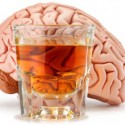Why Doctors Are Giving Heroin to Heroin Addicts
Treating heroin addicts by giving them heroin might seem counterintuitive. But for some of the most hardened addicts, administering heroin in supervised clinics may just do the trick where detox and methadone have failed.
Following the lead of Switzerland and a handful of other countries, Britain recently concluded a four-year trial in which longtime addicts were given daily heroin injections as part of a treatment program to eventually wean them off the drug. Now, with results showing the trial succeeded in reducing street-drug use and crime among participants, Britain could soon become only the second country in Europe to institutionalize the program. That would mean permanent, state-funded heroin clinics would be set up across the country to treat the most heavily addicted people.
“It’s a less than perfect treatment, but for entrenched addicts, it gives them the first steps toward getting their life together,” says John Strang, a researcher with the National Addiction Centre and King’s Health Partners in London, which led the partially state-funded project. “Some make a virtually complete recovery, but others, we get them from a bad place to a less bad place.”
In the trial, which was conducted in the cities of London, Darlington and Brighton, researchers divided the 127 participants into three groups, giving one group heroin and giving the other two intravenous methadone and oral methadone. Although all three groups showed improved physical and mental health thanks to the counseling and social services offered by the clinics, the heroin-using group fared much better than the others. After half a year, three-quarters had largely stopped taking street heroin. And the number of crimes committed by those in the group dropped from 1,700 in the 30 days before the program began to 547 in the first six months of the trial.
Sarah, one of the participants, says she had tried countless treatment programs in the past, but nothing had rid her of her 20-year heroin habit. “I was pretty chaotic,” she says. “Most of my time was taken up by either looking for money or taking drugs.” But by going to the clinic every day to inject heroin, she received help finding housing and battling her depression and had time to become a mentor for inmates being released from jail. Within the first year of the trial, Sarah had reduced her injections from twice a day to once, and she recently quit heroin altogether in favor of a mixture of morphine and methadone. She hopes to be off the drugs soon, crediting her resolve to the program’s nonjudgmental attitude. “It was the right decision, and it was my decision, so I feel quite stable in my recovery,” she says.
Britain has long permitted doctors to prescribe heroin for a small number of hard-to-treat patients, but in the 1970s and 1980s doctors became reluctant to prescribe doses high enough to actually work, fearing patients would sell them on the black market. “It was a lose-lose situation,” says Strang. Then, in the early 1990s, researchers from Switzerland, which was witnessing a dizzying spike in heroin use, came knocking. “They saw what we were doing and said, ‘We can do better,’ ” Strang says.
Among the researchers was Ambros Uchtenhagen, a professor of psychiatry at the University of Zurich, who set up clinics in Switzerland where drug users injected heroin under doctor supervision and received counseling. “We found highly persistent improvement [among the patients],” says Uchtenhagen. Today, there are 23 clinics across the country that treat roughly 2,200 drug users, or about 6% of the nation’s heroin addicts. The average stay is three years — a quick stint for users who average 15 years of heroin use. Less than 15% relapse into daily use. “In the beginning, without their daily chase for a fix, many of them fall into a sort of void. They get depressed: ‘What did I want to do with my life? What relationships have I lost?’ But step-by-step they get hold of their old dreams again,” Uchtenhagen says.
Of course, the treatment was initially met with skepticism from the Swiss public. But last year, 68% of people backed a referendum to keep the clinics permanently funded by the state, obviously convinced that the positive results showed the treatment works. The British program, too, has its critics. “What about other addicts? Will we soon be giving cocaine to cocaine addicts? Alcohol to alcoholics?” asks Mary Brett, vice president of the nonprofit group Europe Against Drugs. “This perpetuates addicts’ maintenance on the drug when the goal should always be abstinence.”
Despite some opposition, though, Britain faces fewer potential roadblocks in making the treatment program permanent than other countries that have experimented with it, such as Germany, the Netherlands and Canada. This is largely because Britain already has heroin on the books as a medication and, most crucially, because the program has strong political backing. The government has already said it would keep the clinics open provided the trial showed positive results. Paul Hayes, head of the National Treatment Agency, stressed in the Guardian newspaper this month that the clinics would only be available to a “very small proportion” of the 160,000 heroin addicts in treatment.
Sarah hopes the program’s future is decided quickly so that those in her treatment group can hang on to their newfound stability. “That’s the one downside about this treatment — the insecurity, knowing that it’s still a trial,” she says.
source: Time Magazine

